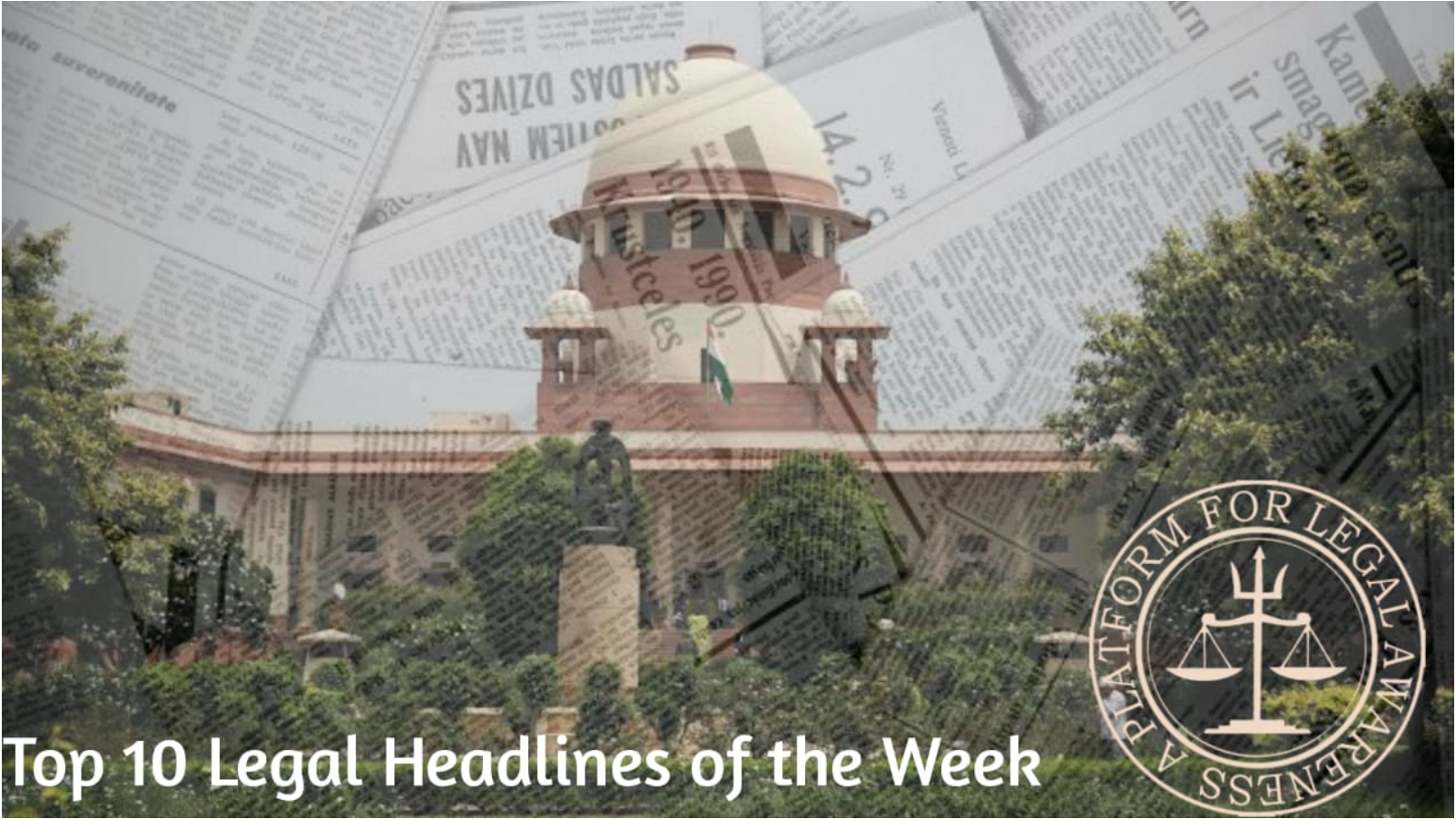1. Supreme Court Dismisses Plea Against Declaration of ISIS as Terrorist Organisation
The Supreme Court rejected a petition challenging a government notification designating ISIS and related ideological expressions as terrorist organisations under the Unlawful Activities (Prevention) Act, 1967. The petitioner argued that there was no evidence of ISIS operating within India. The Court upheld the government’s decision, affirming that such classifications are based on security assessments and the need to pre-empt threats to national safety, regardless of the group’s current level of domestic activity.
2. Supreme Court Orders Removal of Allahabad High Court Judge from Criminal Roster
The Supreme Court strongly criticised Justice Prashant Kumar of the Allahabad High Court for allowing criminal prosecution in a matter that was essentially civil in nature. The judge had reasoned that civil remedies could take years, justifying criminal proceedings as an alternative. Terming the approach legally unsound, the Court directed that he be stripped of all criminal jurisdiction, expressing shock at the reasoning and reaffirming the clear distinction between civil and criminal legal remedies.
3. Supreme Court Stays Defamation Case Against Rahul Gandhi Over Remarks on Army
The Supreme Court stayed criminal defamation proceedings against Leader of Opposition Rahul Gandhi for comments made about the Indian Army during the 2022 Bharat Jodo Yatra. A Bench of Justices Dipankar Datta and Augustine George Masih questioned why Gandhi chose to voice such concerns on social media rather than in Parliament. The Court cautioned him on the implications of public statements by political leaders, while keeping the case on hold pending further consideration.
4. Supreme Court: Parliament Can Initiate Judge’s Removal Without CJI’s Recommendation
The Supreme Court clarified that Parliament retains the authority to initiate proceedings for the removal of a judge on grounds of misbehaviour or incapacity, even if the Chief Justice of India chooses to close the matter. The Court emphasised that this power is derived from the Constitution and remains independent of the judiciary’s internal processes. The ruling reinforces the separation of powers, ensuring that legislative oversight over judicial conduct remains intact.
5. Ex-Bhushan Power Promoters Urge Supreme Court for Fresh Resolution Process Over Liquidation
The former promoters of Bhushan Power and Steel Ltd told the Supreme Court that liquidation was not the intended outcome under the Insolvency and Bankruptcy Code. They argued that if JSW’s approved resolution plan is found defective, a fresh corporate insolvency resolution process should be initiated instead. Citing the law, they contended that once the Adjudicating Authority approves a resolution plan, the Committee of Creditors’ role effectively comes to an end, and alternative revival measures should be considered.
6. Sessions Court Can Summon Non-Charge-Sheeted Accused at Outset of Trial: Supreme Court
The Supreme Court has ruled that under Section 193 of the Code of Criminal Procedure, a sessions court may summon an accused at the commencement of trial even if the police have not named that person in the charge sheet, provided that evidence on record indicates their involvement in the offence. The decision arose from a case in which Kallu Nat alias Mayank Kumar Nagar was summoned to face trial for rape and murder despite being omitted from the police chargesheet.
7. Senior Advocates Barred from Mentioning Matters in Supreme Court from August 11: CJI BR Gavai
Chief Justice of India BR Gavai announced that, effective August 11, senior advocates will not be permitted to mention matters before the Supreme Court. The CJI also directed the court master to issue a formal notice reflecting this change.
8. Supreme Court Seeks Centre’s Response on Challenge to Section 152 BNS
The Supreme Court issued notice to the Union government on a petition questioning the constitutional validity of Section 152 of the Bharatiya Nyaya Sanhita. The plea contends that the provision, which is said to replace the repealed sedition law under the Indian Penal Code, criminalises vague and broadly defined categories of speech and expression.
9. Supreme Court Seeks Centre’s Reply on PIL for Reforms Supporting Neurodivergent Persons
The Supreme Court called for the Union government’s response to a PIL filed by NGO Action for Autism, which seeks systemic reforms to strengthen disability law enforcement and improve support for individuals with neurodivergent conditions, including autism, dyslexia, and ADHD.
10. Supreme Court Split on Tax Assessment Deadlines for Foreign Firms
The Supreme Court delivered a split verdict in a case involving Shelf Drilling Ron Tappmeyer Ltd., an offshore drilling company, on whether the time taken by the Dispute Resolution Panel process under Section 144C of the Income Tax Act should be counted within or excluded from the Section 153 limitation period for completing an assessment.

